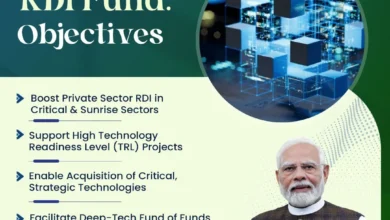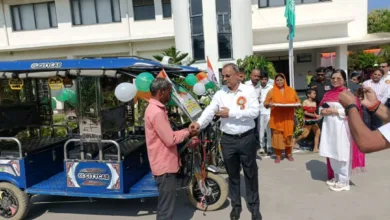MIT-WPU to Host the Inaugural World Technology Summit 2025
MIT-WPU Pune to host the inaugural World Technology Summit 2025, bringing together 500+ global innovators and leaders to shape a sustainable, tech-driven future.

Pune, October 29, 2025: MIT World Peace University (MIT-WPU), one of India’s top universities, is all set to host the World Technology Summit 2025 on November 6–7, 2025, in collaboration with the World Technology Group. This landmark event will bring together 500+ global leaders from 25 nations, including policymakers, innovators, entrepreneurs, and researchers.
The summit will be a celebration of human ingenuity and innovation, fostering collaboration across science, technology, and education.
India’s Growing Role in Global Innovation
Hosting the World Technology Summit 2025 in India reflects the nation’s expanding influence in the global technology landscape. With over 1.6 lakh startups under initiatives like Make in India, India has emerged as one of the world’s fastest-growing innovation ecosystems.
The two-day event will explore breakthroughs in artificial intelligence (AI), biotechnology, life sciences, digital infrastructure, and education — all aimed at shaping the future of innovation with purpose and responsibility.
A Platform for Collaboration and Knowledge Exchange
The World Technology Summit 2025 will offer a unique platform for dialogue among researchers, technologists, policymakers, and industry leaders. Discussions will focus on how innovation can improve human life and drive sustainable development.
Dr. Ganesh Kakandikar, Dean (Innovation, Startups, and Collaborations) at MIT-WPU and Convenor of the summit, stated:
“This summit will bring together experts at the forefront of science and innovation, reinforcing the relationship between technology and human well-being. It will amplify India’s role in AI, biotechnology, and digital transformation.”
Technology with Purpose and Peace
Dr. Rahul V. Karad, Executive President, MIT-WPU, emphasized the university’s vision:
“At MIT-WPU, we believe technology should serve humanity not just through discovery but with purpose. Hosting the World Technology Summit in India is a call to ensure global innovation remains inclusive, ethical, and rooted in peace.”
He further highlighted MIT-WPU’s mission to bridge science and spirituality, making technology a true tool for human progress.
Global Leaders and Distinguished Guests
Several renowned leaders will attend the World Technology Summit 2025, including:
- Dr. Rahul V. Karad, Executive President, MIT-WPU
- Dr. R. M. Chitnis, Vice-Chancellor, MIT-WPU
- Dr. Prasad Khandekar, Chief Academic Officer, MIT-WPU
- Paul J. Foster, Co-Founder & Executive Chairman, World Technology Group
- Steve Hellman, Co-Founder & Board Member, World Technology Group
- Deborah Pandit-Sawaf, Chair, Coordination Commission, World Technology Summit 2025 India
- Nandan Jha, Secretary-General & Founder, Gandhi Mandela Foundation
- Julian Gornall-Thode, General Manager, Shankai Sports
- Stefy Bau, CEO, INIT Esports
Empowering Women and the Global South
With participation from 100+ startups, half led by women entrepreneurs, the summit will spotlight women-led innovation and the growing influence of the Global South in shaping the global technology ecosystem.
Key sessions will include:
- Voices of Tomorrow – The Innovation Generation
- India Vision 2030 – Blueprint for the Global Digital Economy
- Celebrate Human Ingenuity – Past, Present, and Future
- The Rise of the Global South – Redefining Our Shared Future
- Shaping a New Global Paradigm
- Alpha Innovation Now – Human Ingenuity in Action
Innovation for a Sustainable and Inclusive Future
The World Technology Summit 2025 will also feature keynote addresses, panel discussions, and innovation showcases. Sessions will focus on health-tech, climate-tech, and education innovation, highlighting how technology can drive sustainability and social transformation.
Paul J. Foster, Executive Chairman of the World Technology Group, remarked:
“The World Technology Summit is our lighthouse for global dialogue — uplifting technology, science, and innovation. It calls innovators to harness technology that serves humanity with purpose and responsibility.”
Registration and Participation
Those interested in attending the World Technology Summit 2025 can contact the organizers for registration details and participation guidelines. The summit promises to be a milestone event shaping the future of technology and human progress.
The World Technology Summit 2025 at MIT-WPU, Pune, stands as a beacon for global cooperation and responsible innovation. With thought leaders from across the world uniting to explore the future of technology, the event reaffirms India’s growing role in shaping the global innovation narrative.
Also Read : Bank Reaffirms Its Commitment to Integrity and Ethical Governance






